What is the lesson of The Troubles in Ireland?
You could be forgiven if you said there wasn't one, that it was all a pointless sectarian slaughter, but would you be right?
That bitter street-level conflict endured for decades and it marked all who lived through it, most of whom were so busy trying to survive and get by that they didn't have time to wonder what it all meant.
For some, it would seem impertinent to even ask the question. But we should ask. It's crucial to the healing process that we understand what we lived through. That hard experience certainly deserves to be seen and heard and reflected upon.
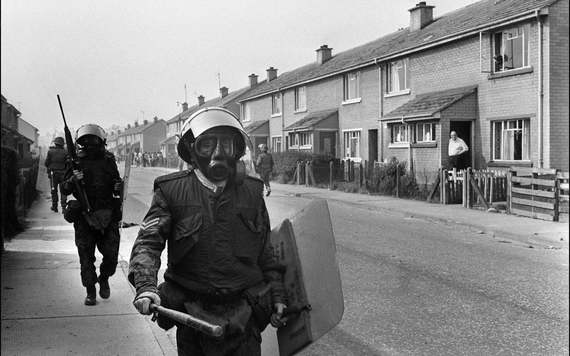
British soldiers in the streets of Derry during The Troubles. (Getty Images)
One of the hallmarks of a colonized society is that it is asked repeatedly to absorb pain without any reflection. Like an abused spouse it is asked to endure the unendurable year after year and just stupidly move on, absorbing the blows.
What's interesting about this process is that people can even start to accidentally participate in their own oppression. We saw this after the Great Hunger when a huge national silence, that was part anguish and part shame, descended on many of the survivors.
Survivors' guilt coupled with a sorrow too great to express effectively silenced generations of our ancestors, robbing them of a chance to describe and commemorate what was after all the greatest social disaster in Europe in the 19th century.
Growing up in Ireland in the late 20th century, it was clear to me that silence over the Great Hunger was still largely unbroken. But it wasn't forgotten, it was feared. Like opening a too-hot oven, our reflex was to instantly close it again in case what escaped should mark us further. So fear kept us silent. It still does.
We keep doing it to ourselves. Our colonial reflex to put the hard work of self-reflection on hold is one of the most consistent themes of Irish life now. Our politicians in particular fall prey to the impulse, sensing the unpredictability of the work and wanting no part in it.
Unfortunately, they often have the power to drive the national conversation so these discussions get postponed and passed over, year after year.
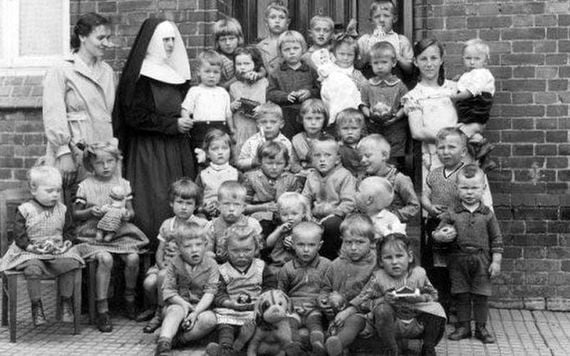
Power has always been at the root of who is heard and who is silenced in Ireland. It is over six years since the Mother and Baby Home story in Tuam, Co Galway broke. There, according to the local historian Catherine Coreless, “as many as 796 children died of causes officially listed as malnutrition, measles, convulsions, tuberculosis, gastroenteritis, and pneumonia.”
These are mostly synonyms for neglect. A child died there nearly every two weeks between the mid-1920s and 1960s. These children died because they were ignored, overlooked, ill-attended to, forgotten. And this week in Ireland new plans have been announced by the government to seal the archives that recorded their plights for the next 30 years.
Official Ireland's latest effort to prevent people from accessing their own records and lives from the official archives will stop many families accessing information about disappeared family members or babies buried in unmarked graves.
Because I suppose, like the mother and baby homes ruthlessly proved to vulnerable young woman once, out of sight is out of mind. Official silence is better than official culpability.
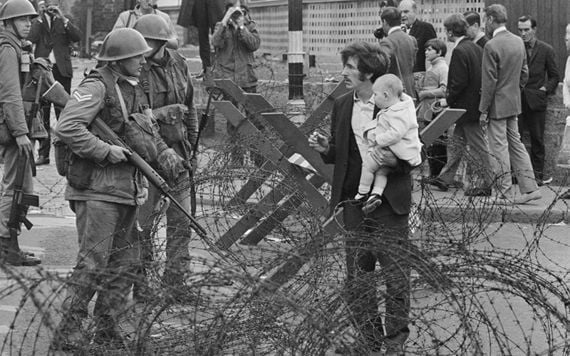
Soldiers and civilians in Northern Ireland during The Troubles. (Getty Images)
This brings me back to the hard lesson of the Troubles. “The minority has never been able to control the majority without first denying the majority's humanity, and thereby losing their own,” wrote Irish American Stephen Colbert.
Colbert was writing in a different context, but this is unmistakably the great lesson of The Troubles: a minority cannot write the rules for the majority without their consent, because conflict will follow like night follows day.
Here in the United States, we are already going to the polls to elect our next president, but Republicans are attempting to ram through the extremist conservative Amy Coney Barrett to the vacant chair in Supreme Court, despite the public's request that they wait until the election is decided.
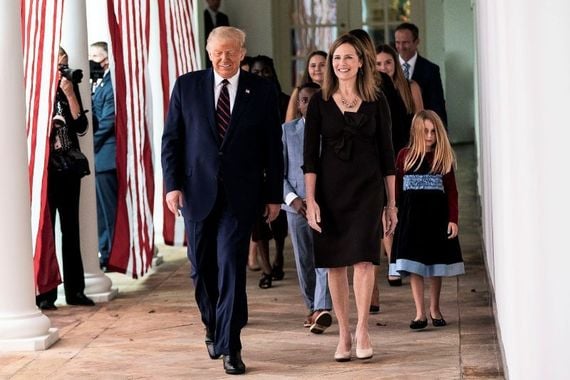
President Trump and Amy Coney Barrett. (Public Domain / White House Flickr, Shealah Craighead)
Understanding that they are increasingly becoming a political minority, Republicans see the ownership of the courts as their best bet to retain real power and shape the national pathway.
This means that like the unionists in Ireland they will become a powerful minority imposing their will on the majority. The North has already shown them where that power blind impulse leads.
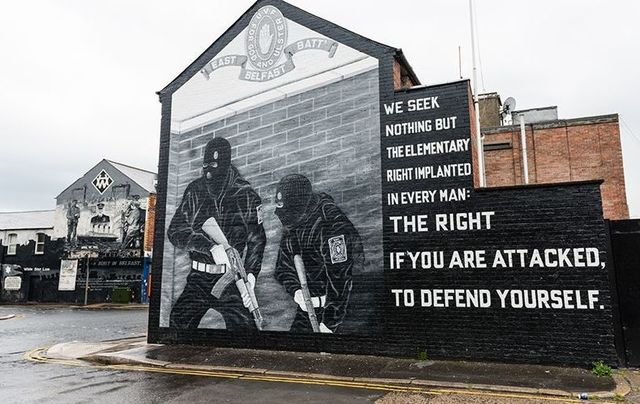



Comments